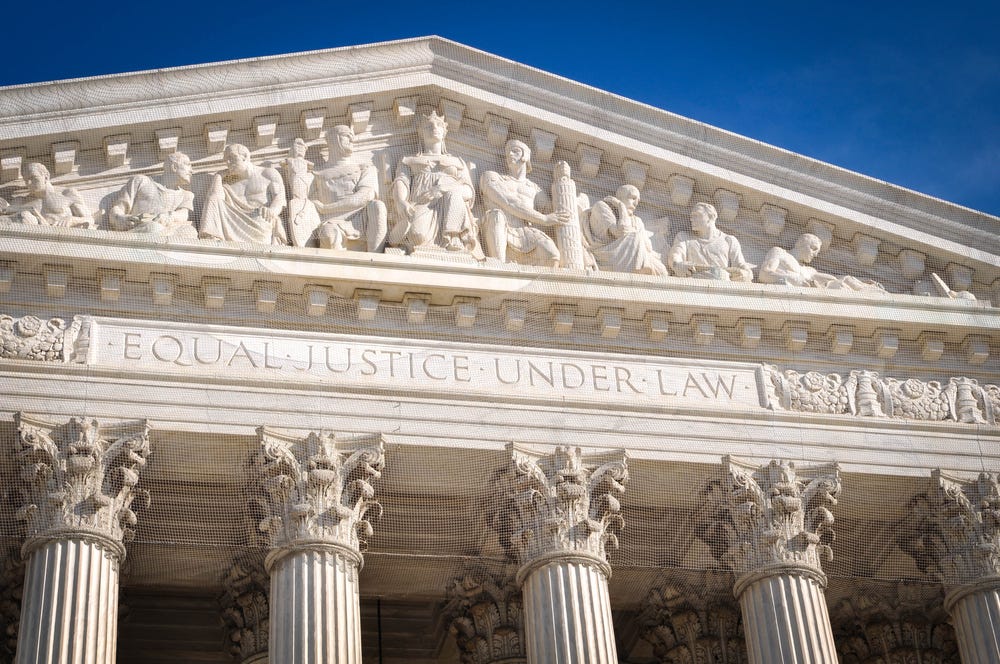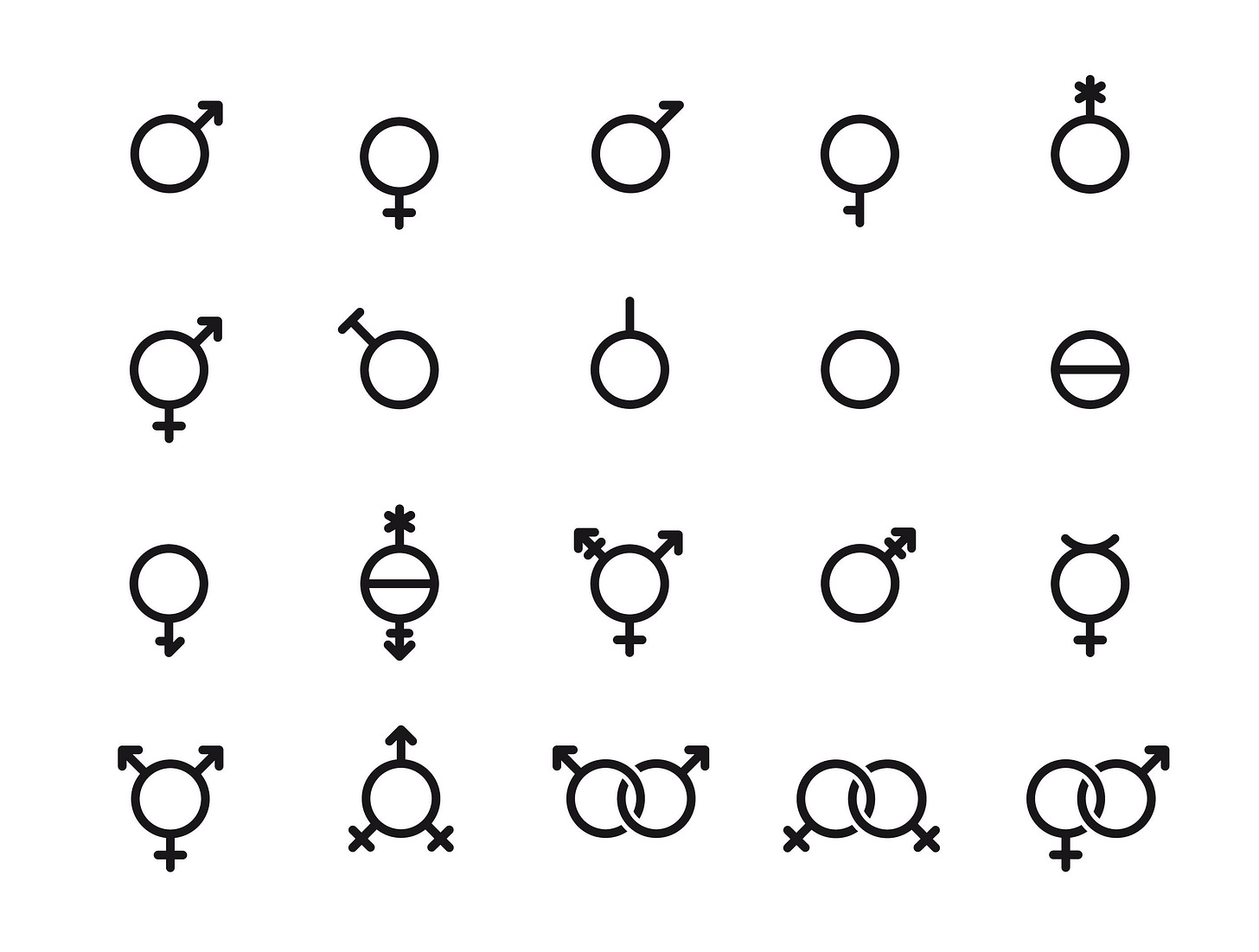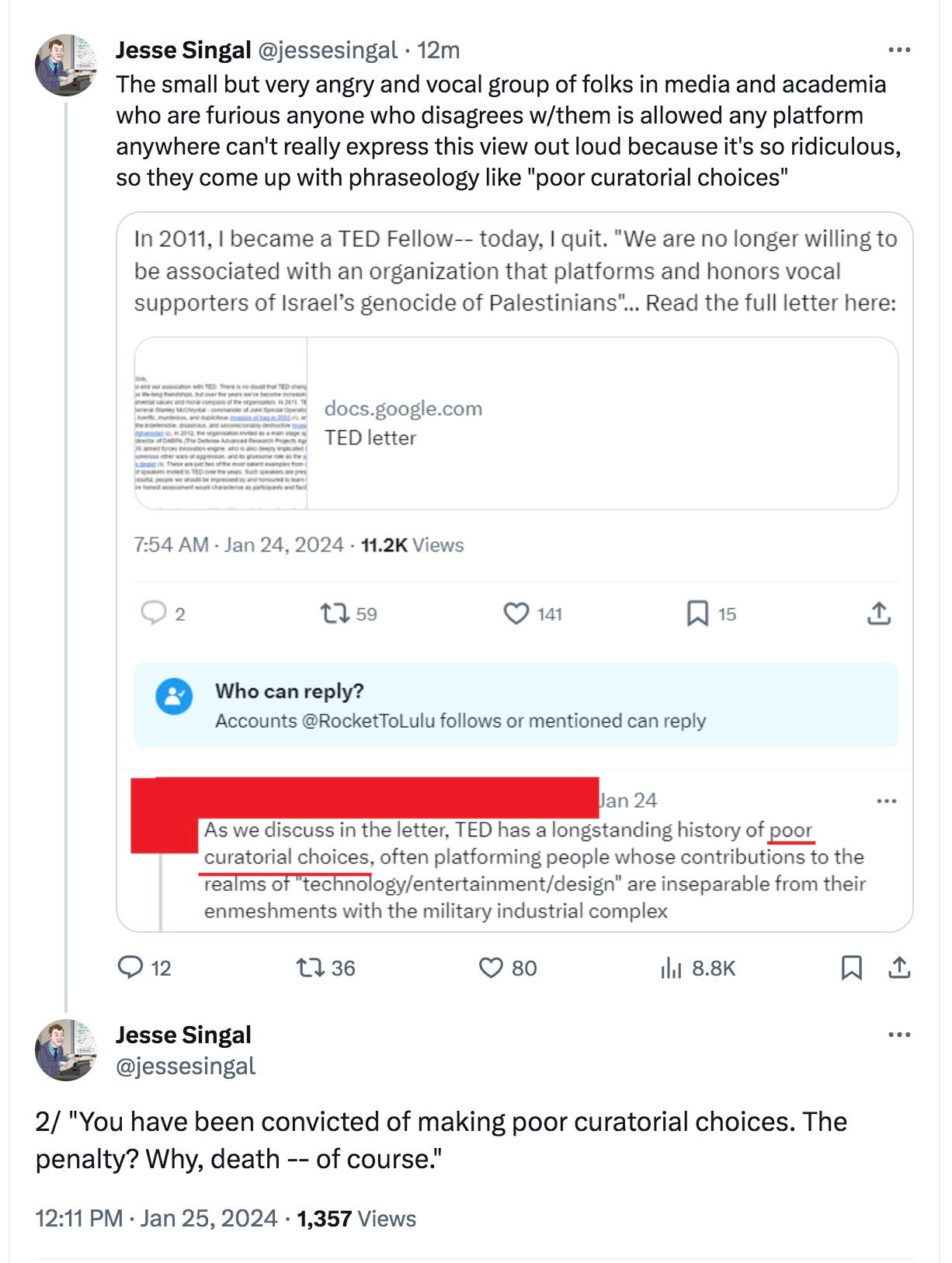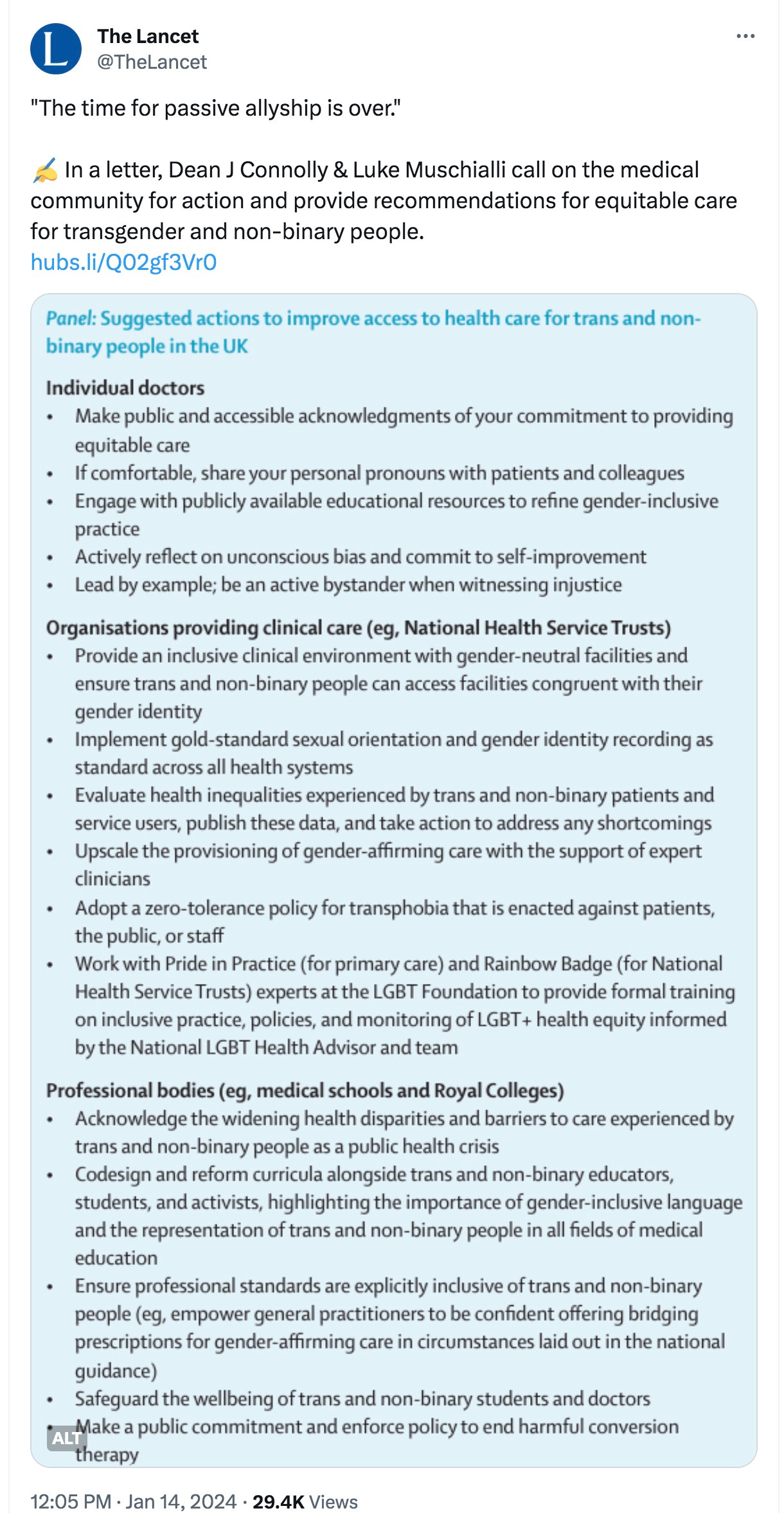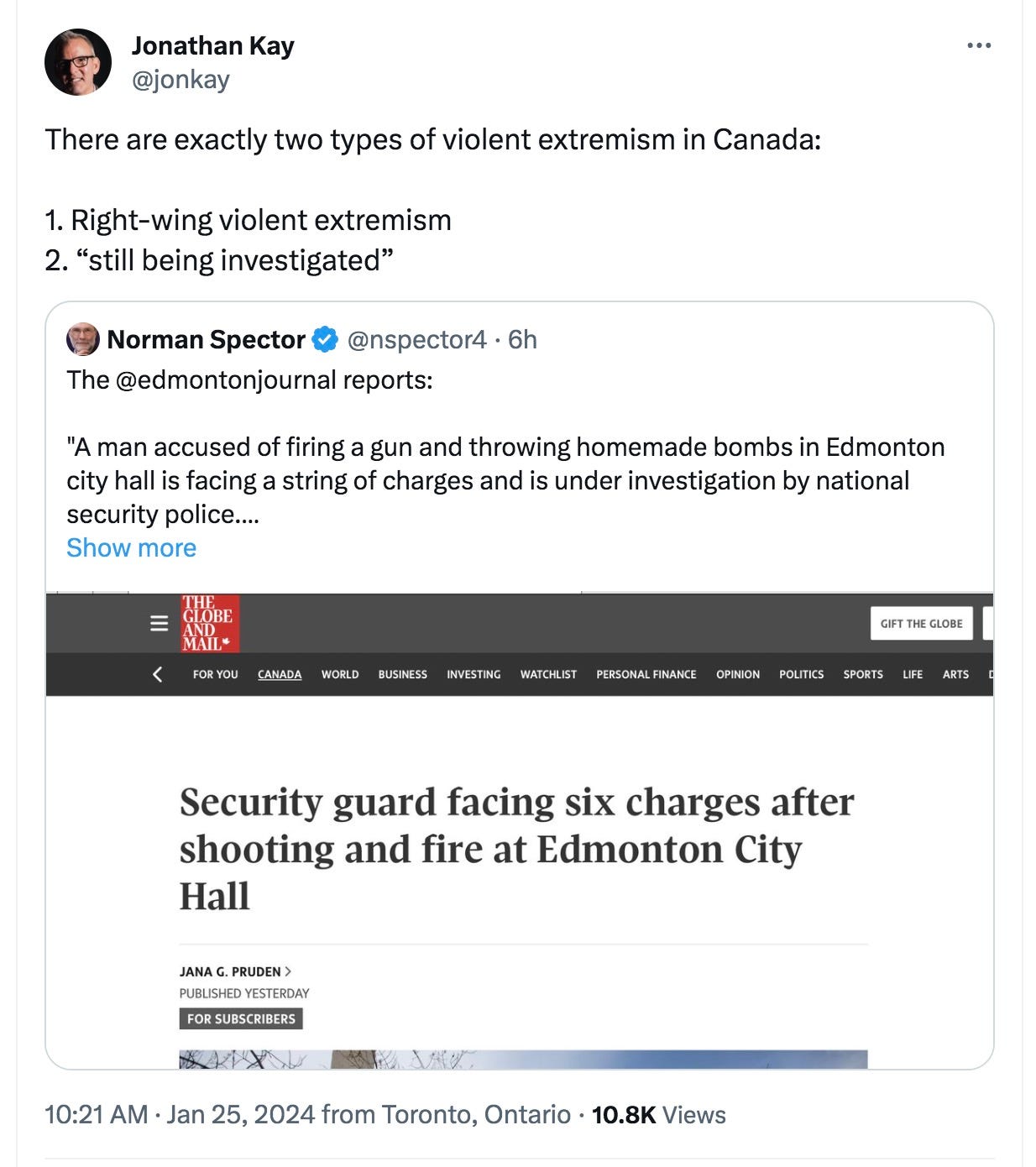E-Pluribus | January 25, 2024
There should be no debate about the importance of debate; the Supreme Court and campus free speech; Portland's endless genders.
A round-up of the latest and best musings on the rise of illiberalism in the public discourse:
Clea Conner: In our polarized world, debate has never been so important
Political arguments are not in short supply, but arguing and debating aren’t necessarily the same thing. Clea Conner of the World Economic Forum writes that truly open debate on serious issues can and does change minds, and we should all encourage these fruitful conversations.
It’s time to rehabilitate the role of debate into platforms for understanding. Extremism thrives on simplicity. It’s the political equivalent of fast food: easy to consume and obviously not good for you. Populist rhetoric feeds on an environment where complex ideas are boiled down to bite-sized slogans designed to shut down conversations and silence opposing points of view. This reductionism is anathema to true debate, which relies on nuanced arguments and data-driven evidence to make informed decisions.
[. . .]
Debate offers a unique platform for building empathy. It necessitates that participants not only articulate their viewpoints but also listen to and engage with opposing arguments. In a debate, issues are dissected and analyzed, offering audiences a comprehensive view rather than a polarized snapshot.
First, we must define victory in debates. Winning should not be about overpowering your opponent with rhetoric, but about bridging the gap of understanding between disparate viewpoints. Imagine a format that values reflective pauses and encourages participants to genuinely consider the perspectives of their counterparts. This isn’t about diluting the rigour of arguments; it’s about enriching them with a dimension of human empathy that’s often missing in our polarized discourse. The true measure of a successful debate should be the extent to which it fosters mutual understanding and opens avenues for continued dialogue. The goal is to emerge not with a winner and a loser, but with a richer, more nuanced appreciation for complex issues and solutions.
Second, let’s broaden the scope of debates. Moving beyond the confines of policy agendas and politics, we should include narratives of personal experience and cultural context. This shift can transform abstract discussions into tangible, relatable human stories, offering a clearer window into how policies and ideas affect real lives.
Here’s where debate plays the most critical role: in a well-structured debate, facts are scrutinized, sources are questioned, and arguments are dissected. This process is fundamental to rebuilding trust and searching for a collective truth driven by critical thinking. True debate, the kind that exposes audiences to a spectrum of viewpoints, is essential in dismantling echo chambers and fostering a more inclusive and comprehensive public discourse.
Read it all.
Nathan: Goetting: A College Free Speech Crisis: The Supreme Court’s Big Hand in the Campus Free Speech Chaos
Discourse Magazine is running a series on campus free speech by Adrian College criminal justice professor Nathan Goetting. In part three, Goetting considers how the Supreme Court helped create the current (poor) conditions on campus.
Debacles like the Stanford event and its aftermath have occurred too many times to count over the past few years. Sadly, the Supreme Court is largely to blame. The most important case the court has ever heard on the First Amendment right to exchange ideas on campuses is Keyishian v. Board of Regents, decided in 1967. In this case, the court clearly stated that the First Amendment guaranteed freedom of expression, especially for professors and students.
“Our Nation is deeply committed to safeguarding academic freedom, which is of transcendent value to all of us and not merely the teachers concerned,” Justice William J. Brennan, Jr. wrote for the majority of the court. “That freedom is therefore a special concern of the First Amendment.”
Keyishian involved a group of State University of New York of Buffalo employees who challenged the constitutionality of the notorious “Feinberg Law.” Named for Benjamin Feinberg, the anti-communist state senator who sponsored it, the law was New York’s primary means of policing the political views of its public school educators during the hysteria that swept over the nation in the early days of the Cold War. It was passed in 1949, at the height of the second Red Scare, as part of a massive national effort to purge “subversives” from the faculty of state schools.
The court’s ruling in this case, striking down the law with a 5-4 vote, was brave and controversial—and a sign of change on the court. Just 15 years before, in Adler v. Board of Education, when McCarthyism was at its apex, the court had upheld the Feinberg Law by a 6-3 vote. The majority opinion in that case reasoned that not only did the state of New York have the power to deny employment to those with dangerous political beliefs, but it had a special responsibility to do so in the case of educators because of the sizable influence teachers had on their students.
[. . .]
However, it was the Supreme Court’s decision in the 2006 case of Garcetti v. Ceballos that has contributed the most to the current chaos—and is causing civil libertarians the most dread. Garcetti involved a deputy district attorney who alleged that his supervisor had violated the First Amendment by punishing him for views about a criminal case about which he’d written in an internal memo. The court ruled that public employees, speaking as employees rather than as citizens, had no First Amendment protections.
Justice David Souter, writing in dissent, expressed concern that should this rule be applied to professors at state universities, it would destroy the First Amendment right to academic freedom recognized in Keyishian. Instead of giving Justice Souter the assurance he’d hoped for that this would not happen, the court decided to maintain the confusing status quo in its majority opinion in Garcetti by punting on the question of whether professors at state schools, speaking as professors, would be deprived of their free speech rights as public employees.
Because “[t]here is some argument that expression related to academic scholarship or classroom instruction implicates additional constitutional interests,” the court wrote, “[w]e need not … decide whether the analysis we conduct today would apply in the same manner to … scholarship or teaching.” With this, the court opened the door even wider for those seeking to undermine Keyishian.
Read it all here.
The College Fix: ‘Non-Binary Transmasculine’: Portland State releases LGBT directory with 20+ genders
The days of checking “M” or “F” on informational forms are long gone. At Portland State University, such a limited choice might seem positively neanderthal. The College Fix looks at the annual revision of the gender list put out by the Queer Resource Center at the college, and (theoretically, until the next revision) there’s something for everyone.
Every year, Portland State University releases a list of its LGBTQ community members and supporters.
This year’s list, obtained by Young America’s Foundation, includes more than 20 genders and sexual orientations, including one called “SaulChad.”
The list is a project of the public university’s “Queer Resource Center.”
“Each year we ask our trans and queer community to join us in celebration to sign our annual OUT list to help us destigmatize being out in school and at work,” the center states on its website. “All PSU students, staff, faculty, alum, community members, and allies are invited to sign the list, we post it every year at the end of October on our website.”
The “OUT List” asks for both “gender identity” and “sexual orientation/identity.”
Listed gender identities include: “genderqueer,” “trans person/non-binary,” “Non-Binary Transmasculine,” “Genderfluid, Transfluid, Genderqueer,” “All, none, just me,” and “Queer- SaulChad.”
[. . .]
Other listed orientations include “Lesbian/Sapphic,” “lesbian!” “bambisexual & demisexual,” and “demisexual panromantic.”
Read the whole thing.
Around Twitter (X)
Three TED Talk fellows have resigned in the wake of TED invitations extended to Bill Ackman and Bari Weiss. Jesse Singal is not impressed with their reasoning:
Great Britain’s venerable medical journal The Lancet has decided to go all in on transgenderism (via Jonathan Kay):
And finally, a pithy observation from Jonathan Kay about “violent extremism” in our neighbor to the north:





